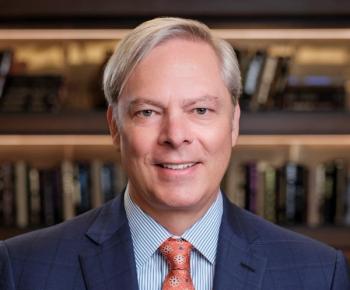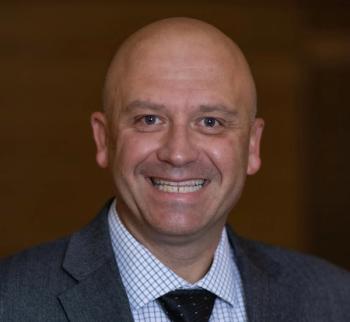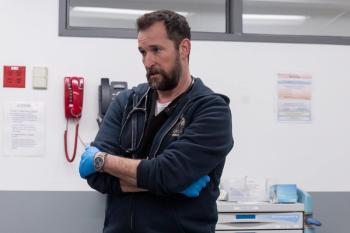
Envisioning nearly all health care at home

Susan Monarez, the former CDC director, says she thinks up to 90% of all care will take place at home in the not-too-distant future.
There’s no place like home for the holidays, and it also may be the preferred place for health care for many Americans.
Susan Monarez, the former director of the Centers for Disease Control and Prevention, outlined a scenario where most care will be delivered in the home in the not-too-distant future. She offered that projection during a conversation
“I fundamentally believe, and I believe this so, so strongly … Ten years into the future, if we do things right, we could have 90% of our health care actually done at home versus in a brick-and-mortar, physical infrastructure setting. We are on the cusp of that level of technology innovation,” Monarez said.
Monarez talked about the future of health during a conversation on HLTH’s main stage with Dr. Jordan Shlain, the founder and executive chairman of Private Medical, a concierge medical practice.
During the HLTH conversation, Monarez said with thoughtful planning, Americans can get more care, and better care, in their homes.
And she said that shouldn’t just be aspirational, but an imperative.
“That's the only way that we're going to save health care in this country, is if we can actually go direct to consumer and empower and give agency to people of their own health, and their own wellness, and their own ability to understand better prevention or better monitoring,” Monarez said.
“And that is the future of health, and we have to absolutely continue to push with that as a North Star,” she added. “All of this technology that is coming through the pipeline, we don't have that level of a North Star, it becomes fragmented and distracting.”
With advances in technology, Monarez says the shift to provide more care in the home and without a trip to a hospital or physicians’ office is coming.
“That is the way that it's going to go. And so now we actually have the ability to consider, how do you move from a brick-and-mortar infrastructure base, to a virtual base for health care? It's not a surprise. It's going to happen,” she said.
Monarez said she is confident that “brilliant people” will figure out an economic model to move to a virtual infrastructure.
“I think it's going to be an exciting time to change that dynamic,” Monarez said.
She also said that it requires moving to a system that keeps people healthy, rather than treating them when they’re sick.
“If you're used to a sick care system, and that is your revenue generation, I think the demand of the patient and even the provider populations to change to a well care system, moving up into prevention, and really understanding your state of wellness and how to retain that wellness, that is going to be the future,” she explained. “So those who are predicated and anchored in this old model are either going to have to adapt, or they will be left behind. Because this new model is the one that is going to take root, and it's really going to be the future.”
In 10 years, people may have AI agents in their home that know them and will ask if they’ve taken their medication, or if they should have a second espresso, she said.
“It becomes, essentially, your health co-pilot,” she said. “It's living with you in your home.” (She also said AI agents may have a different name, one that sounds less “covert.”)
Monarez has deep experience supporting novel programs in health care and technology.
She formerly served as deputy director for the
The first CDC director ever to win Senate confirmation,
“Even under pressure, I could not replace evidence with ideology or compromise my integrity,” she testified in the September hearing.




























































































